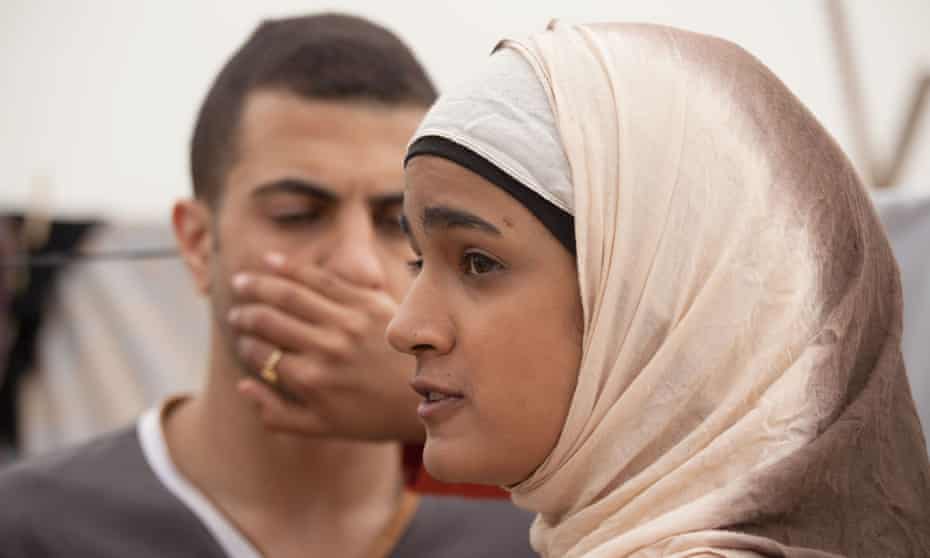My streaming gem: why you should watch Sand Storm
The latest in our series of writers highlighting underseen gems is a recommendation of an intimate drama set within Bedouin culture

So much of the drama in Elite Zexer’s quietly furious debut feature Sand Storm goes down while the Bedouin women in the film are attending to their chores.
They argue and seethe while preparing meals, doing the laundry or repairing generators. They drag out tensions while sweeping floors, even though the air in Negev, a southern region in Israel, will redistribute the desert dust in 10 minutes. Their family could be unraveling, but still they keep to these duties and maintain the order.
Sand Storm, an award winner at the 2016 Sundance film festival, embeds itself in Bedouin culture, closely observing the rich tribal traditions and concerning practices. The women in Zexer’s intimate and powerful drama simultaneously sustain and chafe against that culture. The film is about how they clash with each other while upholding the extremely patriarchal society that buries their voices.
The first people we meet in Sand Storm are doe-eyed Layla (Lamis Ammar) and her doting father, Suliman (Haitham Omari). She’s driving his pickup and discussing her college grades. Her education, skills behind the wheel and fashionably colour-coordinated hijabs set her apart as a modern Muslim woman within a conservative tribal culture.
But such signifiers of progress are deceiving. Layla is driving her father to his wedding celebration, which is being prepared by her mother, Jalila (Ruba Blal). Suliman is enjoying the spoils of polygamous practices by marrying a much younger second wife. He literally divides his home to accommodate these arrangements. Jalila bears it, though Blal’s precise performance suggests she’s containing a whirlwind of conflicting emotions. In a community where women can only do or say so much, the tiniest details echo like thunder.
The storm comes during those wedding celebrations, when Jalila intercepts a phone call from Layla’s secret boyfriend, Anwar (Jalal Masrwa).
Zexer has said in interviews that Sand Storm is based on something she experienced. Forbidden romances like this are not a particularly novel storyline in film, and especially in narratives about conservative cultures that practice arranged marriage. Sand Storm was at Sundance the year before Kumail Nanjiani and his wife, Emily V Gordon, brought The Big Sick to the festival, relating their own experience contending with arranged marriage.
But Sand Storm is not that kind of movie. Zexer isn’t really interested in exploring the romance between Layla and Anwar. We hear about him more than we see him. And he’s often shunned to the narrative’s corner. In a key image from the film that ended up on its poster, Anwar sneaks over to Layla and Jalila’s property. Layla covers Anwar’s mouth, silencing him and pushing him into the background as she stares off into the distance, listening for her mother.
That moment comes from a deftly choreographed set piece with the characters navigating rows of hanging laundry. Zexer doesn’t waste a frame. Anwar is pushed and tugged in different directions, as if in a balletic dance. Every glance and stare is precise and purposeful, as the drama unfolds between mother and daughter. In a fairly simple plot, their complicated relationship is the focus. Anwar is just a conduit, exposing the tension and connective tissue between the women.
Jalila may be pitched – at least at first – as Sand Storm’s chief aggressor. She’s the harsh matriarch doing the patriarchy’s bidding. Suliman suggests as much in the opening scene, when he tells Layla that her mother is going to kill her over some dust. But the dynamics are more complicated and Zexer nimbly wades through them.
Her exploration of the burdens women bear goes beyond the obvious and overt social restrictions in Bedouin society. She homes in on the microaggressions that are universally felt.
You don’t have to come from a conservative eastern culture to recognize the small, unspoken but insistent expectations men like Suliman place on women like Jalila; or the casual ways he undermines her decisions, even when it comes to the household he leaves her to run. Those little moments, and there are so many of them in this dense narrative, cut right to the soul.
But Sand Storm avoids the trap of being a simple, didactic and depressing look at systemic injustice. Its women, hardened as they become, resist.
Even in their most dire circumstances, Layla and Jalila’s can be passionate, snappy, empathetic, purposeful and steadfast. In Ruba Blal and Lamis Ammar’s revealing performances, we find hope. In Elite Zexer’s film, the women loom large.
- Sand Storm is available on Netflix in the US and UK
